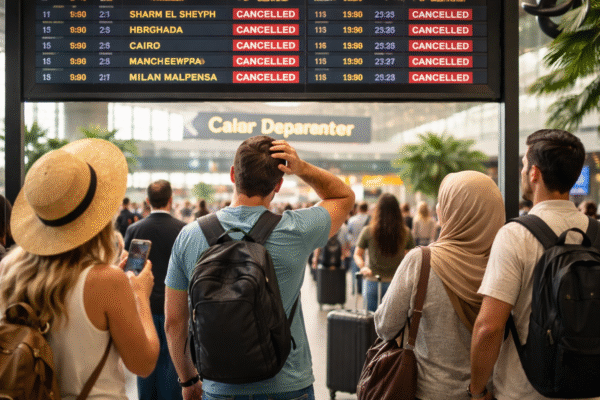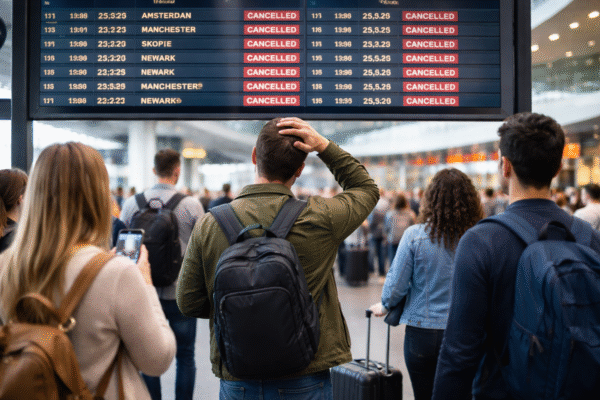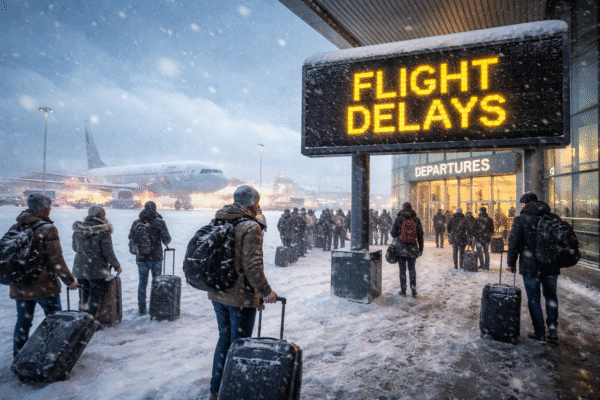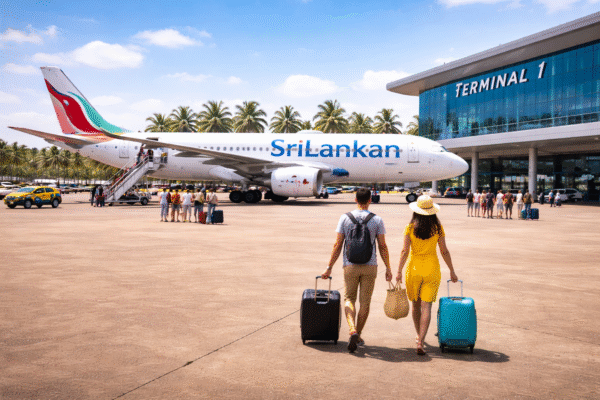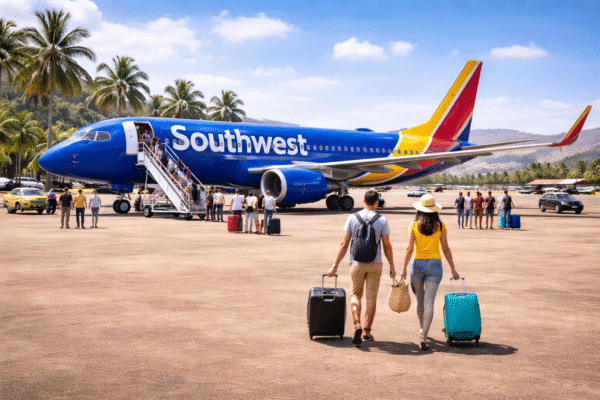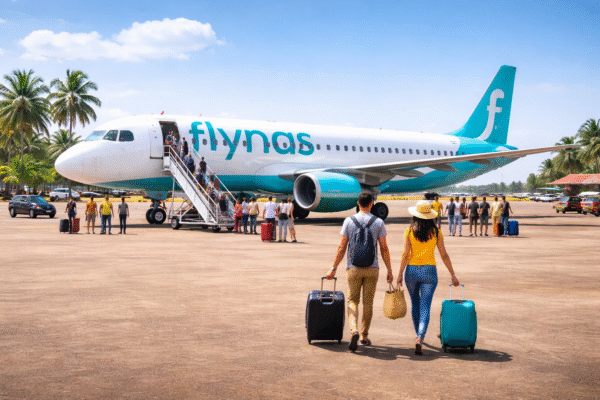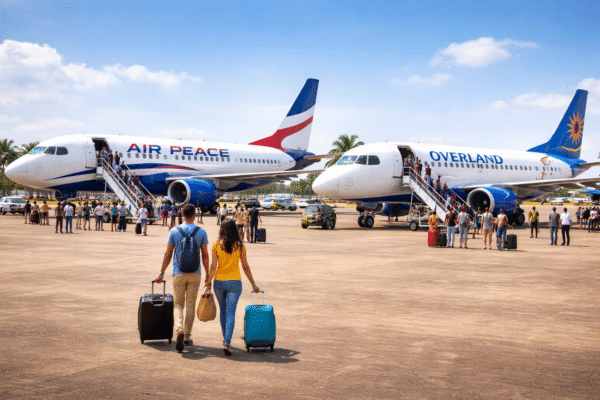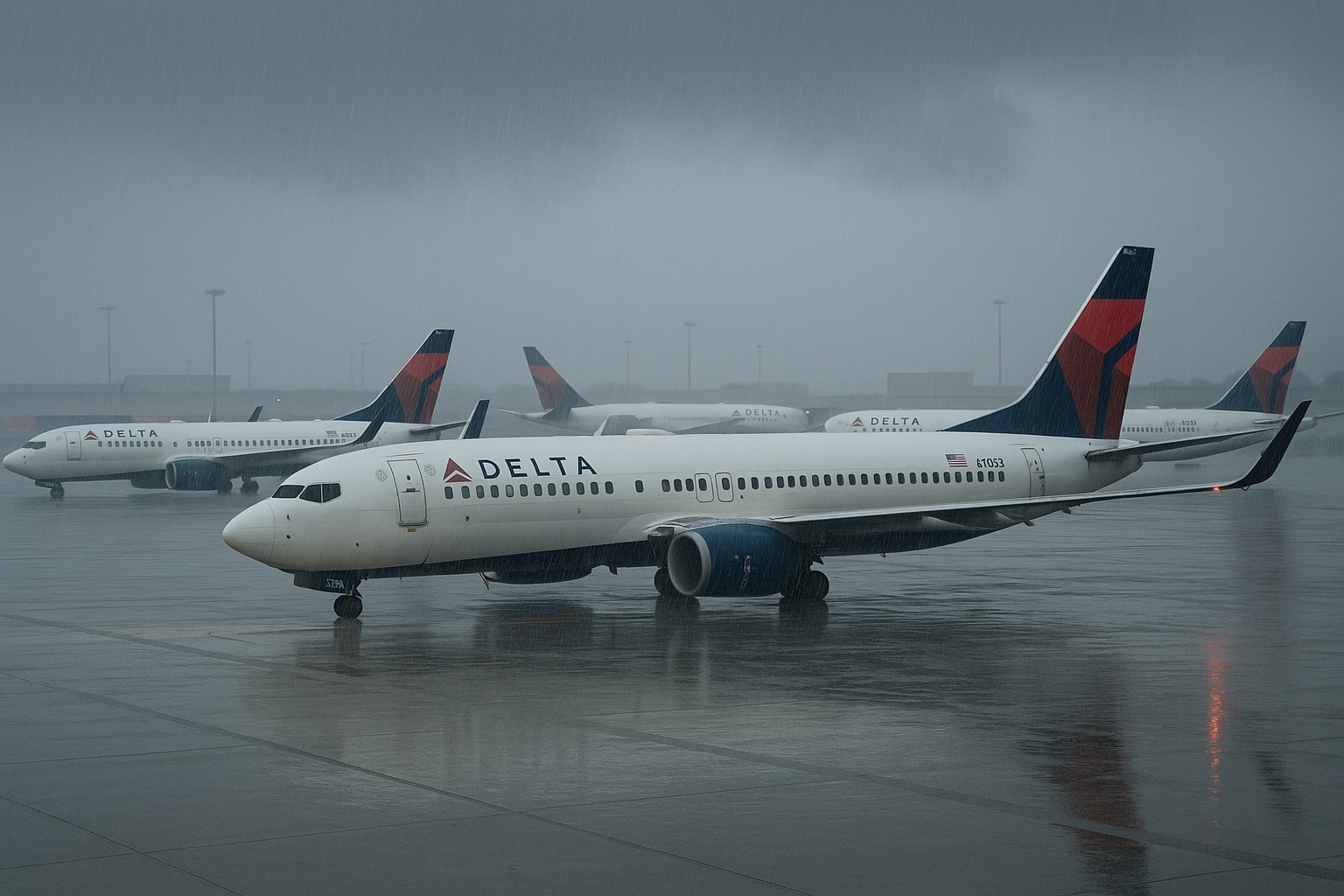Delta Air Lines faced significant operational setbacks as a severe storm swept through Atlanta, grounding flights and disrupting travel plans for thousands of passengers during one of the busiest holiday periods of the year. The powerful weather system, which struck Hartsfield–Jackson Atlanta International Airport (ATL) on Friday, triggered over 1,000 flight delays and 170 cancellations, primarily affecting Delta’s vast domestic and international network.
Hartsfield–Jackson Atlanta International Airport, known as the world’s busiest airport by passenger volume, is Delta’s primary hub. As a result, the storm’s impact rippled through the airline’s entire system, just as millions of Americans prepared for Fourth of July weekend getaways.
Thunderstorms, Hail, and High Winds Cause Widespread Travel Chaos
The storm brought intense thunderstorms, high winds exceeding 60 mph, quarter-inch hail, and dangerous lightning conditions, which prompted the Federal Aviation Administration (FAA) to issue a flash flood warning and temporarily evacuate most air traffic control personnel from ATL’s control tower.
For safety, Delta initiated a ground stop, pausing all departures and arrivals, and began an immediate inspection of over 100 aircraft exposed to the storm. Damage assessments primarily focused on identifying potential hail impacts that could affect aircraft performance or safety. As a precautionary measure, Delta held incoming flights at their origin airports until after midnight Eastern Daylight Time, as FAA restrictions prevented landings at ATL during the storm’s peak.
Passenger Experience and Operational Fallout
According to data from FlightAware, 1,000+ flights were delayed and at least 170 canceled by Friday evening. Departing flights experienced an average delay of 16 to 30 minutes, while arriving flights were delayed by more than an hour on average. Delta also confirmed that over 90 flights had to be diverted to other airports across the region, further complicating recovery operations.
The disruptions came at a critical moment, just ahead of the July Fourth holiday—a peak travel period with more than 900 daily flights operating out of ATL. Passengers reported long wait times, crowded terminals, and limited rebooking options as Delta scrambled to adjust crew schedules and reposition aircraft across its network.
In a public statement, Delta apologized for the inconvenience and assured travelers that it was “working around the clock” to restore normal operations. The airline’s customer service teams and mobile app provided updated notifications and rebooking assistance to affected travelers.
Safety-First Approach: Delta’s Proactive Fleet Inspection
As part of its rapid response protocol, Delta launched a safety-first fleet inspection effort to ensure that all aircraft caught in the storm were airworthy before returning to service. Maintenance crews focused on hail-related damage and conducted structural inspections using specialized diagnostic equipment. The airline emphasized that no aircraft would be returned to service without full safety clearance.
Aircraft inspections, coupled with crew rescheduling, meant that delays and cancellations persisted into Saturday. However, Delta noted that flight schedules were gradually stabilizing as the airport resumed full operations.
FAA Tower Evacuation Slows Recovery Efforts
During the height of the storm, the FAA made the rare decision to evacuate most of ATL’s air traffic control tower due to extreme winds and lightning. Only essential staff remained to handle minimal operations. This safety measure slowed the airport’s ability to recover quickly, adding further delay to an already strained flight schedule.
The FAA resumed full tower operations once conditions normalized. Controllers returned, and the backlog of flights began to be processed more efficiently by early Saturday morning.
Holiday Travel Headaches Amplified
With millions of travelers taking to the skies for the long Independence Day weekend, the storm’s timing could not have been worse. Delta’s operations at ATL—already stretched due to holiday demand—were severely tested. Passengers with connecting flights, especially international travelers, faced the additional burden of missed connections and overnight delays.
Delta issued travel waivers for affected passengers, allowing rebookings without additional fees, and offered vouchers for hotel stays where necessary. The airline’s social media and app-based support channels saw increased activity, as stranded passengers sought updates and alternate travel options.
Long-Term Implications and Operational Lessons
While Delta is recognized for its strong on-time performance, the Atlanta storm incident underscores the vulnerability of even the most robust airline systems to extreme weather events. As climate-related disruptions become more frequent, airlines are under pressure to enhance real-time crisis response, passenger communication, and operational flexibility.
Delta’s response, focused on proactive safety checks and coordinated recovery, was broadly commended despite the unavoidable inconvenience to travelers. The incident also highlighted the importance of integrating weather analytics, predictive maintenance, and FAA collaboration into flight management systems—especially at major hubs like ATL.
What Travelers Should Do
As Delta continues to work through the aftermath of the storm, passengers are advised to:
- Check flight status regularly via the airline’s app or website
- Take advantage of travel waivers or flexible rebooking options
- Allow extra time for airport check-ins and security
- Monitor weather advisories in the southeastern U.S. region
Conclusion
The severe weather disruption at Hartsfield–Jackson Atlanta International Airport served as a critical stress test for Delta Air Lines at the height of summer travel. While delays and frustrations were inevitable, the airline’s commitment to safety, transparency, and recovery has helped mitigate a chaotic situation. As Delta regains operational momentum, travelers are encouraged to remain patient and informed during this peak travel season.
For more travel news like this, keep reading Global Travel Wire





